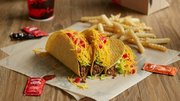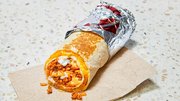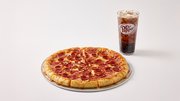Article
Johns Hopkins business study reveals ways to amp up promos
Johns Hopkins University's Carey Business School has released a study showing that restaurants and other retailers can employ specific actions to get the most bang out of their marketing bucks from so-called "conditional sales promotions."

June 22, 2018
Johns Hopkins University's Carey Business School has released a study showing that restaurants and other retailers can employ specific actions to get the most bang out of their marketing bucks from so-called "conditional sales promotions." A news release describes these as things like BOGO offers that place a "condition" on whether customers qualify for the cost savings.
The school found that there are specific actions that restaurant operators can take when using these promotions that can make the difference between a promotional flop and a real sales accelerator. It's key, for example, that operators understand how and when to offer such deals, said Ozge Sahin, John Hopkins Carey Business School Associate Professor and study co-author. Conditional promotions engage two types of consumers: the value-conscious, who are strictly after a promotion's cost savings, and the deal-prone, who get more out of the psychological lift from "the satisfaction of getting a good deal" than the actual cost savings they're reaping.
Sahin said go da buy-in from deal-prone customers can engender more sales during a conditional promotion because a restaurant brand "moves more product and takes in more profit, while shoppers enjoy the thrill of buying at a discount."
Conversely, when few deal-prone shoppers are attracted to the offers, conditional promotions that "entice customers to overspend may lead to lower profits."
The study also refutes a common belief that promotions like these work best to move unpopular products.
"We found that even when customers highly value the product ― and they're deal-prone, which is a critical factor ― the seller can still use a conditional promotion to increase his profit," Sahin said in the release.
The study also called special attention to two types of conditional sales promos:
- All-unit discounts, where the savings applies to all items sold if the purchase meets a minimum eligibility requirement, like offering those who buy two or more sandwiches the option to get 25 percent off the total price.
- Fixed-amount discounts, where the total cost is cut by a certain, predetermined amount if a required minimum is purchased, like buy two iced teas and take $1 off the total price.
"A key finding from the research is that one kind of discount can prove more profitable than the other, depending on the market," Sahin said. "When consumers aren't willing to pay the regular price, the all-unit discount performs better because only the all-unit discount can induce people to buy more than the minimum that's required for the discount. On the other hand, when customers are already willing to buy something at the regular price, the fixed-amount discount brings more profit to the seller."
"The important implication is that retailers should use an all-unit discount to stimulate sales of a high-price or newly launched item, while the fixed-amount discount is more effective as a frequent promotion of a low-price or established, brand-name product."
The study also determined that conditional discounts tend to outperform price mark-downs as profit generators for brands because the appeal to deal-prone consumers is not as attractive. Put another way, deal-prone customers don't get as big a kick out of mark-downs as they do taking dollars-off the price of a couple of meals.









